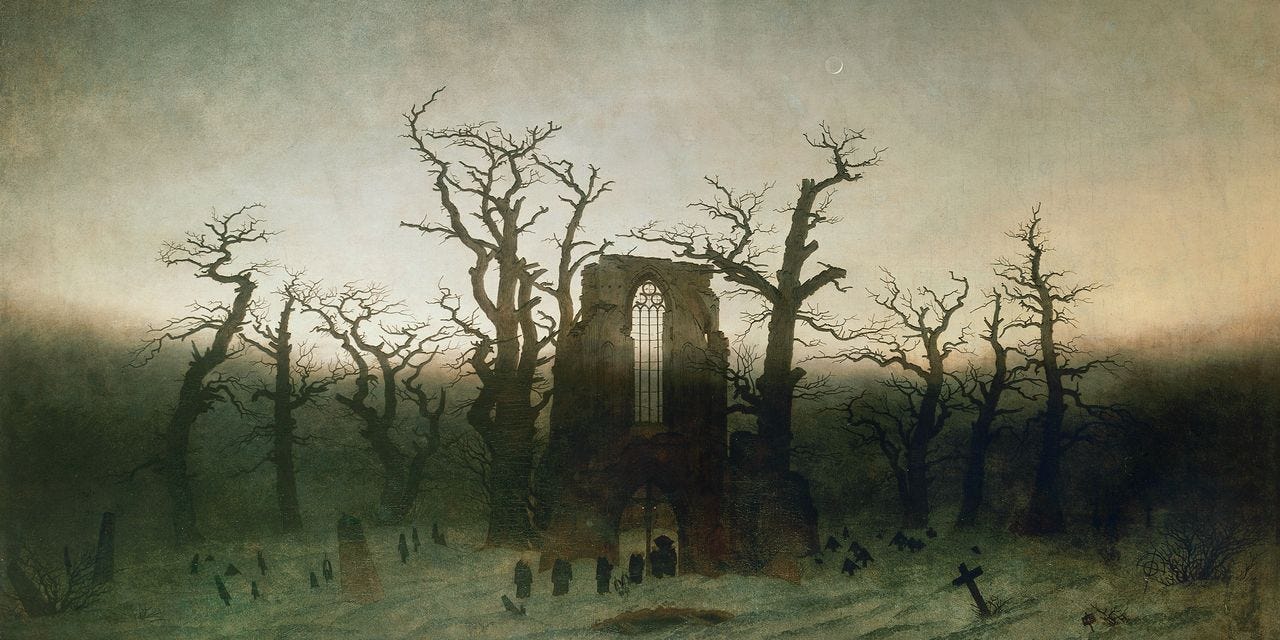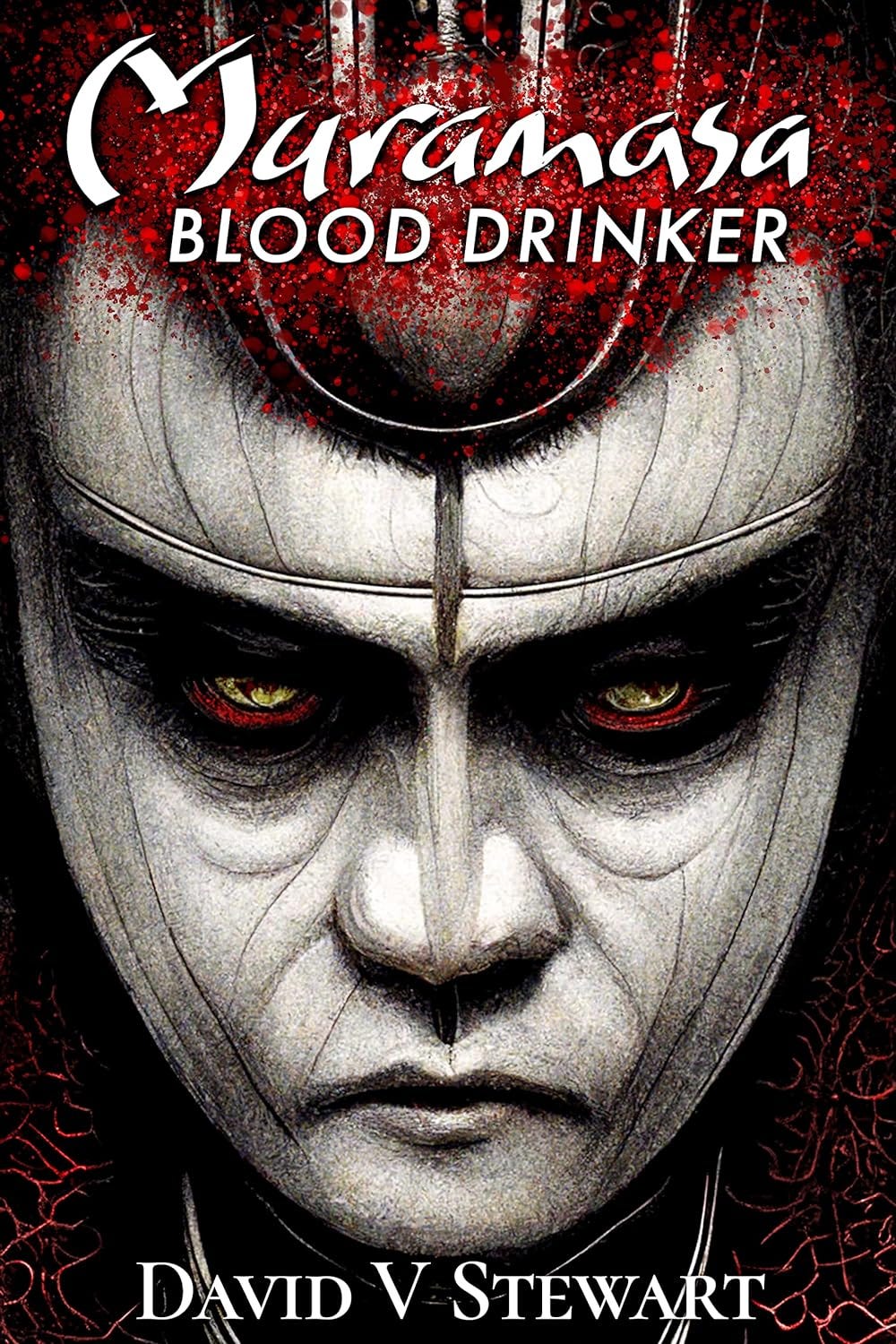
I talked about this a bit in my video “Humanizing the Digital” as well as “Writers who hate writing,” but I thought I would also write it down here, since different types of media create different effects and have different emphases.
AI (popular shorthand for large language model) is a disruptive technology. My focus is on art since I am an artist, but it potentially affects other professions, from marketing to engineering. These arguments only apply to the arts directly, and I will leave other thoughts for the experts in their respective fields.
Let me start with the main argument that I get regarding the use of AI for visual art: it eliminates jobs for artists.
Labor savings is probably the worst “against” argument you can make regarding any technology as we all actively seek to save labor in the myriad of things we buy, from dishwashers to cars, and you end up with a special pleading case.
However, this sidesteps the main issue with AI and art, which is that AI art is by its nature not art in the strictest and most human sense because it is a product without a communicative intent. Art by its nature is human and computers cannot replace humans because they (thus far) lack the intent of a human being. Having a robot draw you a picture might satisfy you as a consumer and you may enjoy looking at it, but it does not for an artistic experience make.
Even making this argument I realize that most people, artists included, are going to miss what I am talking about because our culture has evolved (devolved?) so far past any traditional relationship with arts the sentiment might as well be alien. We are decades deep into art being entertainment and entertainment being a mass industrial product.
I recall understanding this back in the late 1990s with its wave of awful boy bands and bland Nickelback-style corporate rock acts, from whence I derived some of my first truly misanthropic feelings. I thought people in general must be stupid for Backstreet Boys to be popular. How could anyone feign having a connection to, or being affected by, such vapid trash? Perhaps there indeed are many stupid people, but the real issue is that people had been trained at that time in the Corporate Period in the Arts to view music the same way they viewed a bag of potato crisps or a pair of sneakers.
This really hit home with me in 2015 after the release of The Force Awakens, an expensive and poorly executed tour of corporate nostalgia masquerading as pop art. George Lucas, the auteur creator of Star Wars, was ejected from production, which was handed over to a Gen X director who treated the IP like his toy collection. Despite this, apologists relentlessly affirmed that it was real Star Wars because George Lucas had sold Lucasfilm and its properties to Disney. He sold it, therefore… authentic! It is ironic that at the same time those same people would say the prequels weren’t real Star Wars because they didn’t like them, or they didn’t look like the originals, etc. In the years since various mythologies have popped up to relieve the cognitive dissonance – ideas that Gary Kurtz was the real man behind Star Wars or that Lucas’s ex-wife edited trash into gold with the first movie. But for the average fan, movies are a thing you just watch.
Any weight regarding considering who is doing the creation is simply ignored in favor of viewing each movie as a consumer product, to affect the senses and then be discarded, consumed like a Big Mac – perhaps multiple times since you can always go to McDonald’s when you want to. Do you really care who makes you a corporate sandwich, or even if a robot does it?
Movies really are the height of corporate art. They are funded and managed by corporations whose directors decide who should write the movie, who should run its production, who should star in it, and who the movie should be made for. There are so many people involved in a movie production it is difficult to discern who the critical artist even is, and it is therefore easy for a corporation to change out as many employees as they like, since even the audience doesn’t pay attention to them. The only thing that matters is the franchise name and, to only a slightly lesser extent, who is on screen. This is why actors get paid several orders of magnitude more than writers, the people who ostensibly are crafting the story (though that is debatable, too). Losing Johnny Depp as Jack Sparrow effectively ends the Pirates of the Caribbean Franchise (at least until the IP can be resurrected a la the corporate IP death cycle). He’s the only part of the production the audience consistently knows is associated with the movies, and the only one they will notice being replaced.
Going back to AI art, artists are afraid of being replaced because truthfully many of them could be. This is because they are working as technicians for corporate or corporate-style products, rather than being artists in the romantic ideal. They are drawing what another person tells them to draw; thus, if it is cheaper to tell a computer to draw the same thing and the outputs are similar, the human will lose out on a job. Nobody really considered the artist an artist to begin with. He was a laborer, a peasant employed to do a job for a certain salary.
Book covers are such a good example of this phenomenon stretching well back before AI, perhaps even into the pulp era of 100 years ago. Artists were never hired to do the covers of novels or magazines because their art was somehow effective or communicative of itself; it was an advertisement for readers, so that they would consider buying the real product, which was the book. It’s communication was limited to the genre and maybe some story elements. As soon as publishers could eject artists from the equation and save money by not hiring them, they took it. This didn’t happen in the 2020s but sometime in the 1990s, when painted book covers began to be replaced by covers designed in Adobe Photoshop or Illustrator.
By the time the AI discussion took over, artists were already out of work for two decades. Now I am aware that cover designers (photocomposite technicians) are protesting AI art because (shocking) they don’t want to be put out of the job the way they put painters out of the job 20 years ago. We’re now at the point where having a painted cover can actually harm your book sales, depending on the genre, because they are so rare they confuse consumers. The margins are so thin and the market so saturated now the cost of a book cover can mean the difference between breaking even or losing money. Of course authors will want to use the cheapest effective cover they can, because they aren’t charities that exist to create employment for artists.
Also keep in mind the author field was the first where I saw a sizeable portion of the profession look to replacing themselves with AI… for profits! The indie author sphere is full of “authorpreneurs” who love the idea of putting out as much fiction as possible directed as closely to microniche market demands as possible while spending the least amount of money and time to do it. Having an AI write your book for you would be a huge labor savings (and probably also a direct money savings, since many indie authors use ghostwriters). You could finally achieve the golden ring of being an “author” without the trouble of writing a book, or more to my point, having anything at all to say to anyone.
It’s mostly a status thing.
Indie authors already viewed their output as equivalent to a bottle of drain cleaner: a specific product made to meet a specific need, not as a piece of communication between human beings. There’s nothing wrong with running a business with your art (I’ve been doing that for 20+ years), but shouldn’t the art have something to do with the person making it? Isn’t it supposed to be subjective in some sense, not just an object independent of people?
I mention the corporate period in the arts—that’s the 20th century paradigm where corporations direct art toward specific consumer desires for aesthetics, story types, etc. The de-humanization of art certainly stretches back a long way, with IP such as The Shadow playing a part in removing the person of the artist from the artistic product, but it finds its full pregnancy at the end of the 20th century, where consumers will buy Spiderman comics because they say “Spiderman,” even when the titular character is no longer in the comic at all.
It’s new Coke. It’s still Coke because it says so right on the can.
So, what is to be done?
Well, start by making art.
Before you jump into “being” an author you should have a work that is worth authoring. You should have a story to tell. Before “being” an artist, you should have something worth painting. The same goes for music. People imagine themselves being a rockstar, not being a musician – not working hard to make something special that only they can make. Authors likewise fantasize about book signings or “seeing their name on a book cover” but spend no time thinking about what they want to say with their books.
All of this, even if it collapses certain industries, is an opportunity for us to reconsider what it means to be a “successful” artist. You probably won’t buy a mansion, but you can make art that affects other people and if it does that, somebody is going to be willing to pay you to do it.
But first comes the art. It is time to reclaim art for ourselves and perhaps (to give food for thought) for God. Remember that medieval composers and artists rarely, if ever, signed their work. Caspar David Friedrich stands on one side, the nameless medieval illuminator on the other, but they both were reaching to meet other people with their art.
You can get my books for free by becoming my patron on Pateron or Ko-Fi, or buy them from Amazon. You can also get my music from zulonline.bandcamp.com or listen for free (plus all my improvisations) on the Zul YouTube channel. This month’s free book is Tyrant’s Gallow, book 2 in the Moonsong series, and you can also get the first book for free if you join now. Also you get a free book for joining my mailing list at dvspress.com/free-book.






